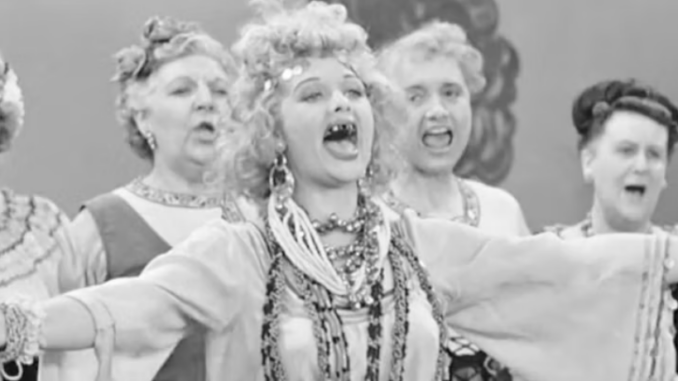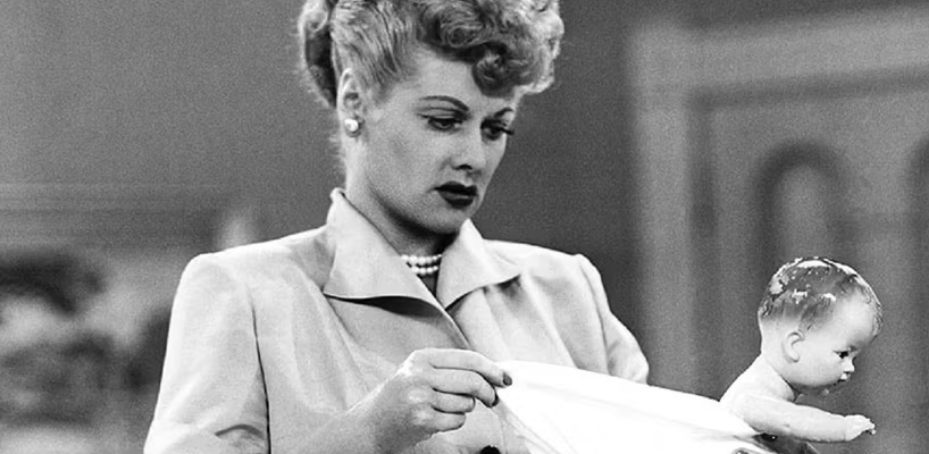
Because TV is being sent into people’s homes rather being sought out by viewers, networks are very careful to avoid upsetting their audience. The TV networks value their sponsorships most of all and don’t want advertisers rushing to distance themselves from a racy message. Censors are employed by every network to serve as their moral watchdogs, but sometimes something gets by them or is more controversial upon release than these executives thought it would be.
Ever year, at least one episode of some series (likely South Park or Family Guy) sneaks through, pushes limits, and upsets the public to the point of complaint. While what counts as controversial has changed over the 70 years that TV has been in our homes, it’s true that moral indignation will always have a home where a television is found.
List of 5 Controversial TV Episodes That Shocked the Nation.
Contents
Seinfeld – “The Puerto Rican Day” (1998)
As this iconic series was approaching it’s finale in the spring of 1998, more and more viewers were tuning in to the show, with each week setting massive ratings records. Unfortunately for Seinfeld, the penultimate episode of the series was its most controversial, and over 38.3 people saw it on the original run.
Caught in massive traffic caused by the annual Puerto Rican Day parade, Jerry, George, Elaine, and Kramer have to deal with the crowds and events going on around their car. The first major snafu the show involves Kramer accidentally setting a Puerto Rican flag on fire and then proceeding to stamp it out. Secondly, after a mob damages Jerry’s car, Kramer exclaims, “It’s like this every day in Puerto Rico!”
Claiming that the ethnic characters were portrayed as dated stereotypes, and that the flag of the Commonwealth of Puerto Rico was used in a disrespectful way, leaders from the community spoke out against the show. As a dominant ethnic group in New York City, Puerto Ricans staged protests at NBC headquarters, 30 Rockefeller Center, and the network eventually offered an apology for the episode.
Since the series wrapped only one week later, “The Puerto Rican Day” was more of a concern in syndication and didn’t have a significant effect on the rest of the series. Excluded from reruns for years due to the controversy, the episode has been placed back into rotation, and is available to stream with the rest of the series on Hulu.
I Love Lucy – “Lucy Is Enceinte” (1952)

As one of the first hit TV series, I Love Lucy had to tread the murky waters in establishing what networks, censors, and audiences would and wouldn’t accept on TV.
When Lucille Ball, the actress who played lead character Lucy Ricardo, got pregnant, the series had to figure out how to handle an expectant mother on TV. Luckily for the network, Ball was married to co-star Desi Arnaz, who played her TV husband Ricky Ricardo, meaning that there was little scandal with the actress being pregnant, only how to present it to viewers.
The major problem that CBS had with the pregnancy was not the state of Lucy, but with the word pregnancy itself. Noted as a medical and indecent word, CBS refused to allow the word to be spoken on screen. Dancing around the facts for the whole episode, and even using the French word for pregnancy, “Enceinte” in the title, in the last moments of the episode Lucy tricked her husband into figuring out that they were in the family way.
55 years later, Knocked Up premiered. We’ve come a long way.
Star Trek – “Plato’s Stepchildren” (1968)
Found caught by a sadistic race of aliens on an unknown world, the crew of the USS Enterprise is telepathically forced into acts they don’t want to do, including having Mr. Spock (Leonard Nimoy) show emotion, and Captain Kirk (William Shatner) parade around as a fool.
Unbeknownst to the Platonians, their forced kiss between Kirk and Lt. Uhura (Nichelle Nichols) aided 1968 Earth society by being TV’s first interracial kiss. A sabotaging studio ordered alternate takes where the kiss didn’t occur, the cast of Star Trek forced NBC into a corner, and the episode aired with the kiss in place.
In retrospect, the kiss itself isn’t the act that is indeed controversial, and it was the UK who acted on the cruel nature of the episode. Until 1994, the episode was unaired by the BBC, who cited “torture [and] sadism” as reasons for keeping it off the airwaves.
M*A*S*H – “Goodbye, Farewell and Amen” (1983)
The most watched series finale of all time, M*A*S*H signed off in a controversial, yet honest fashion. The show took a light-hearted view of war by focusing on Korea while the country was still fighting and later reeling from the scars of the Vietnam War. Dealing with the issue of mental illness and post-traumatic stress disorder, M*A*S*H went off the air still pointing out the effects of war.
Hawkeye (Alan Alda) is found starting the episode in a mental institute, being treated for some unknown psychological trauma. All Hawkeye can remember is a jovial atmosphere with drinks and saving some refugees and their farm animals, but through some digging by his doctor, Hawkeye begins to remember what actually happened.
In Hawkeye’s memory, after getting upset at a woman with a clicking chicken for the noise it was making, the woman smothers it. Recalling the actual events, the women brought an infant in her arms, and she silenced it to avoid detection by enemy soldiers, killing it in the process. The moment is known as one of the saddest on broadcast television, and with 125 million tuned in to the episode, it made for a controversial sendoff.
Mister Rogers’ Neighbourhood – “Conflict” (1983)
With 1983 being a banner year for controversial television, who would have thought that Mr. Rogers would ever make this list? However, for a week-long story arch in November of 1983, Mister Rogers’ Neighborhood was focused on King Friday, the puppet king of the Land of Make Believe, stockpiling weapons and pondering issues of nuclear war.
In a naive, Mr. Rogers-ian way, the episodes were intended to help kids process a recent TV movie, The Day After. Extremely bleak and realistic, the movie aired in primetime and portrayed the devastating effects of a nuclear explosion. Even President Reagan remarked that the film affected him and changed his opinions on nuclear weapons upon viewing it.
Unfortunately, children weren’t ready for either version of nuclear war either, and the Mr. Rogers episodes were noted as being particularly dark. Scarier still, it took until 1996 for these shows to be removed from the regular rotation of reruns on PBS.

